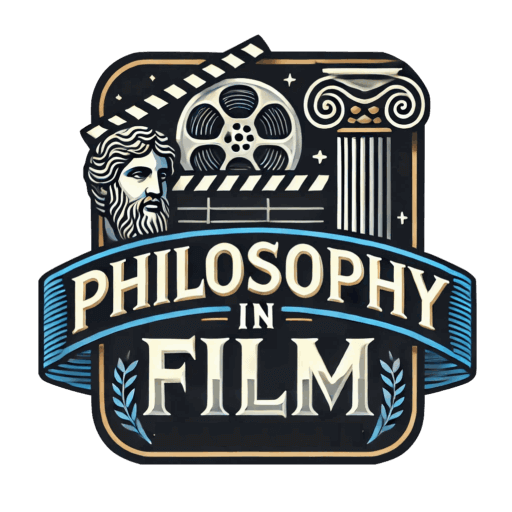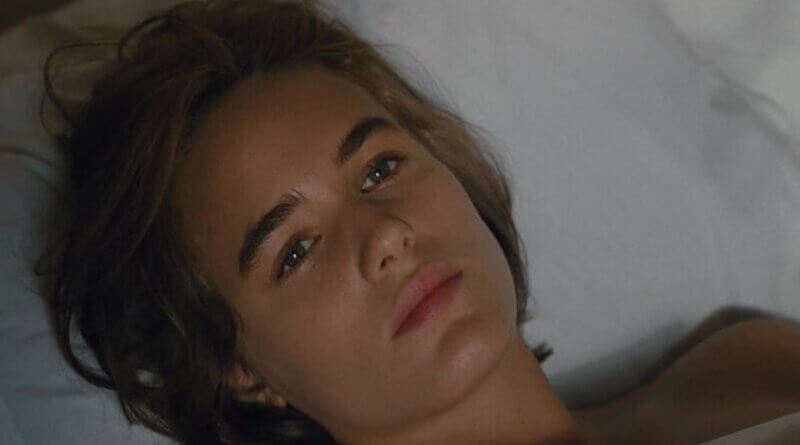Review: The Disenchanted (1990) ★★½
Sometimes, you walk away from a piece of European Art Cinema and feel affected, for better or worse. Films like Irreversible (2002) may leave you feeling disgusted, while existential films like The 400 Blows (1959) may leave you feeling depressed, moved, or just generally introspective. However, some films just leave you feeling that you’ve wasted your time. Unfortunately, Benoît Jacquot’s The Disenchanted (1990), or La désenchantée, falls in the latter category.
The story follows a teenage girl, Beth (Judith Godrèche), who feels dissatisfied with her love life, her family, her school, and her inability to escape the tiny world she occupies. When Beth tells her boyfriend that she loves him, he refuses to say the same. He then encourages her, somewhat cynically, to go find an ugly boy with which to have sex. This, he says, will help her know if she really loves him.
Beth immediately runs from the room to go find an ugly boy. The remainder of the film revolves around her troubled relationship with her boyfriend. She also finds nothing but trouble at home, where she must care for her invalid mother and avoid the “Sugardaddy” that keeps her family out of abject poverty. Thus, The Disenchanted is a coming of age story about a free-spirited young girl who is forced to enter adulthood too soon.
However, it’s not easy to reach this conclusion, as the film is just shy of an hour and twenty minutes. The Disenchanted is at once too short and too long for its own good. It is too short for the audience to fully appreciate the heroine but too long to accommodate a poorly-paced story. In this respect, Benoît Jacquot managed to find the most imperfect balance of notably “French” film techniques.
That said, plenty of other French films meander without feeling like a burden to watch. Breathless (1960), Cleo From 5 to 7 (1962), Going Places (1974), and even Jacquot’s own Diary of a Chambermaid (2015) all find a way to strike a delicate balance between the “tenants” of European Art Cinema and the more Hollywood-esque feature of entertaining the audience. Unfortunately, La désenchantée struggles to find its footing while reaching for either goal.

Though Judith Godrèche and the supporting cast all work well together, few of the characters seem real. This disconnect is perhaps the film’s greatest and most frustrating fault. On the surface, the film portrays the realistic struggles of a young, but far from naive girl. Beth must deal with a dying mother, a problematic boyfriend, and a predatory “Sugardaddy” who pays the bills. She navigates these issues as she tries to find her own voice and place in the world.
In its visual style and narrative structure, The Disenchanted has a feeling of realism. However, Benoît Jacquot’s only wants to flirt with realistic portrayals, rather than bringing them forward with full force. Jacquot portrays Beth as a frustrated young woman who wants to express herself artistically in an indifferent world. At the same time, she must deal with the realities of an unfortunate upbringing. Herein lies the realism, but as she meets new people along the way, the cracks begin to show.
Few of the characters feel like actual people, which takes away from the dramatic heaviness of the film. The mother just sits in bed, staring blankly at the wall, the victim of some unknown illness. She functions as little more than a prop somewhere in the background.
While fighting off her boyfriend, Beth finds a kindred spirit in an older, knife-wielding man who likes to write poetry. The interactions between Beth and her new friend feel at best, surreal, and at worst, laughably forced and unrealistic. Yet, he helps her find her voice, to one degree or another.
As a fan of Benoît Jacquot, it pains me to write such a negative review of one of his films. That said, no director hits the mark 100% of the time. The Disenchanted (1990) may come across as an exemplary piece of French art cinema on the surface, but after a while, viewers will realize that it’s just a poorly-done coming of age story masquerading as something more.
Rating: ★★½ out of 5
If you’d like to watch Benoît Jacquot’s The Disenchanted (1990), the film is currently available to rent or purchase via Amazon here. For more film reviews like this one, consult the Philosophy in Film Homepage!

